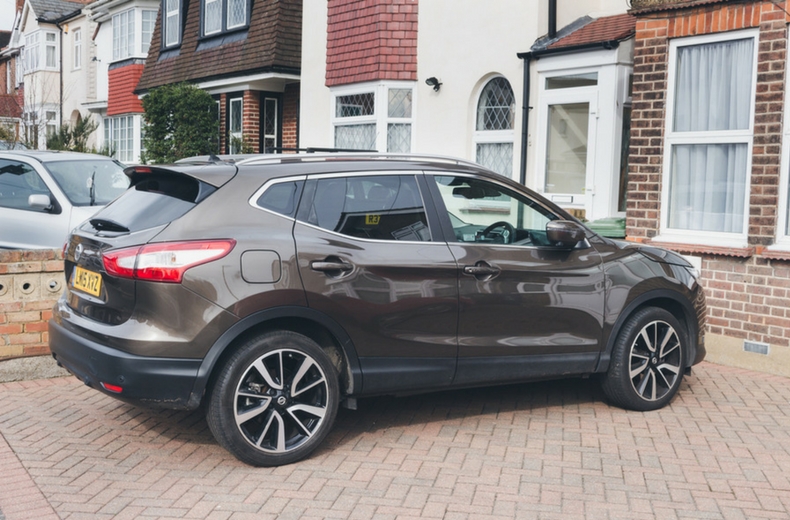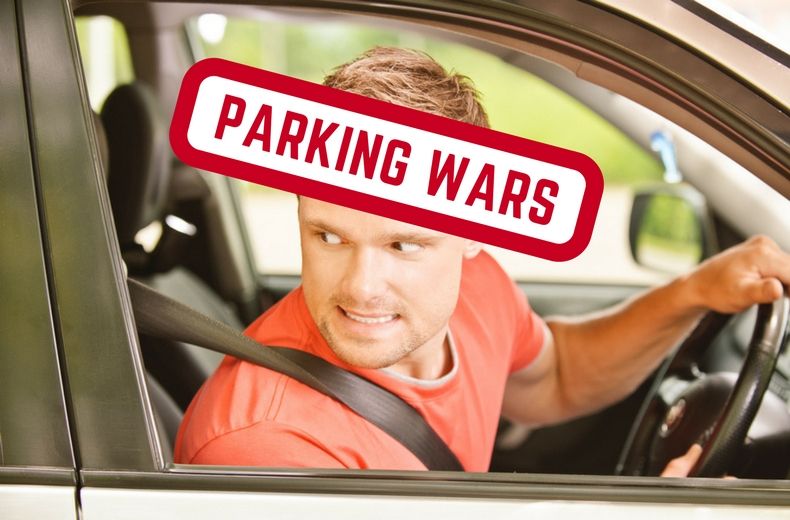Coming home to find someone else's car parked on your driveway is the stuff of nightmares.
Your first thought is likely to be to call the police or council to have it removed, but you can’t assume the authorities will be able to help you.
A curious loophole in the law means that, technically-speaking, this type of abhorrent behaviour could go unpunished.
Here's what you need to know, should you find yourself a victim of this issue.

RAC sale – up to 33% off*
• Roadside cover from £5.29 a month†
• We get to most breakdowns in 60 mins or less
• Our patrols fix 4/5 breakdowns on the spot

Is it illegal for someone else to park on your driveway?

While there is no criminal law against the indecent act of someone parking on your driveway without your consent, your driveway is part of your property so by driving onto it the person is committing an act of trespassing.
Trespassing, however, is classed as a civil offence not a criminal offence, meaning the police don’t have the power to make an arrest.
Can the police or council remove the car?
At one time, parking enforcement was handled by the police, but following the Road Traffic Act 1991, responsibility transferred to local authorities, which can issue penalty charge notices for parking offences on the road.
If the offence is committed on a public highway or the car is blocking the driveway while parked on a public road, the council has the power to act. But when a car is on a drive, it’s technically on private property – and the council has no authority to remove it.
Where a vehicle has been abandoned, your local council would be required to move it regardless of whether it’s on public or private land, but if the car has up-to-date tax, insurance, MOT and isn’t in a dangerous condition, the council is powerless to do anything.
What can you do if someone parks on your driveway?
There is no quick fix for nuisance chancers using your driveway to nab a parking space for the day.
Unfortunately, there is little chance of the law getting involved and the legal action outlined below will take a considerable amount of time and - unless you have the legal add-on as part of your home insurance policy - expense.
The best thing to do on a one off is to keep calm and don't let the situation escalate, never take the law into your own hands and do not stoop to revenge tactics that could get you prosecuted also.
If it's causing an issue, try and speak to the person and resolve the situation sensibly.
If you find it is a long-term issue, either happening on a regular basis, or a car has been left on your driveway for some time, the following advice may help.
Take legal action
If you were to pursue a civil case for trespassing, the courts have the jurisdiction to remove the car from the driveway.
Your solicitor would be able to get the civil court’s permission to find out the legal owner of the vehicle involved, and a judge would have to make its removal an order of the court.
Another option is to pursue a legal claim for nuisance behaviour on the grounds that the driver is interfering with your use and enjoyment of your property.
You should be aware, however, going through the courts, can be a long and potentially costly process if you do not have legal expenses insurance.
Remove the car yourself
A quick solution to get rid of the car would be to hire a private tow truck to take the vehicle away, but this is not advised by the police. If the car gets damaged, you could be liable to pay for damages.
The Ask The Police website says: "Don't damage/clamp the vehicle or have it removed by a third party for destruction or storage without first seeking legal advice. If you do any of these things, you may commit a criminal offence or the owner may pursue a civil action against you.
"Under no circumstances would we advocate you merely pushing the vehicle on to a road and leaving it there as you may commit a number of offences."
If the car is leaking petrol, contains dangerous items such as gas bottles or is parked dangerously, call 999 straight away.
MORE ADVICE: Parking Charge Notices - how to avoid and appeal
Request the car is removed
Local councils have a duty to remove abandoned vehicles, so if you suspect the vehicle is abandoned the best thing to do is to report it to your local authority.
A vehicle is considered abandoned if one of the following applies:
- They have no keeper on the DVLA’s database and are untaxed - check vehicle tax online
- They’re stationary for a significant amount of time
- They’re significantly damaged, run down or unroadworthy - with flat tyres, wheels removed or broken windows
- They’re burned out
- They have number plates missing
Local authorities must give 15 days’ notice before they remove the vehicle. They can’t remove the vehicle if the landowners or occupiers object during the notice period.
What steps can you take to prevent someone parking on your driveway in the future?

There are steps you can take to deter people from parking on your drive, such as putting up a fence, gate or bollards. This might be especially helpful if you live near a hospital, for example, where parking is notoriously difficult – and expensive.
But don’t even think about taking revenge by vandalising the vehicle or you could end up being prosecuted yourself.
READ NEXT: Parking guide - where you can and can’t park
What does the Highway Code say about parking?
Parking etiquette and the law are two different things. According to section 243 of the code, you must not park:
- Near a school entrance
- Anywhere you would prevent access for emergency services
- At or near a bus or tram stop or taxi rank
- On the approach to a level crossing/tramway crossing
- Opposite or within 10 metres (32 feet) of a junction, except in an authorised parking space
- Near the brow or a hill or hump bridge
- Opposite a traffic island or (if this would cause an obstruction) another parked vehicle
- Where you would force other traffic to enter a tram lane
- Where the kerb has been lowered to help wheelchair users and powered mobility vehicles
- In front of an entrance to a property
- On a bend
- Where you would obstruct cyclists' use of cycle facilities except when forced to do so by stationary traffic
There are also a whole set of rules related to parking on the pavement, which is currently only illegal in London.
Parking on someone else's driveway without their permission is hugely inconsiderate and should never be done, irrespective of the laws.
If you have experienced this type of nuisance behaviour we would like to hear about it in the comments below.
Want more useful content like this sent straight to your inbox?
Want to protect yourself from any financial losses after an accident? Get legal expenses insurance for just £15 a year with RAC Legal Care Plus.
5 Star Defaqto rated cover
RAC Comprehensive Car Insurance Plus has been given a 5 Star Rating by Defaqto. Get a quote online today.








